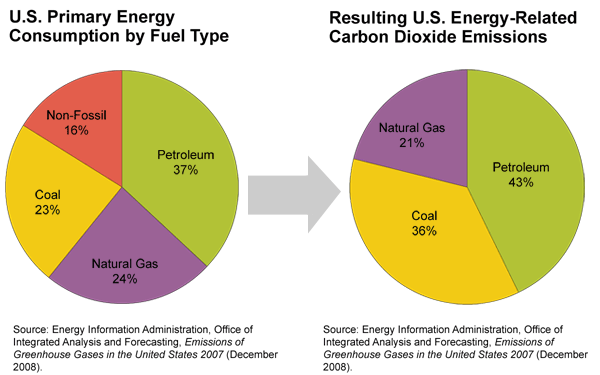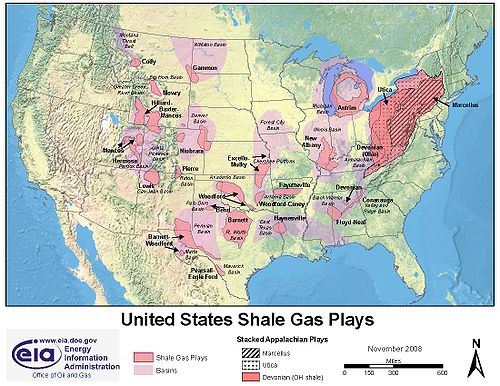On Saturday I attended an conference called “Natural Gas, Renewables and Efficiency: Pathways to a Low-Carbon Economy,” co-sponsored by the American Clean Skies Foundation, the World Watch Institute, and the United Nations Foundation. The following speakers were present:
- Christopher Flavin, President of Worldwatch Institute
- Vello Kuuskraa, President, Advanced Resources International
- Aubrey K. McClendon, Chairman of the Board and Chief Executive Officer, Chesapeake Energy Corporation; Chairman of the Board, American Clean Skies Foundation
- Ian Smale, Group Head, Strategy and Policy, BP
- Senator Timothy Wirth, President, United Nations Foundation
The purpose of the conference was to provide information about why natural gas from shale formations should play a prominent role in the types of energy sources to be considered in this week’s negotiations. Natural gas burns cleaner than oil and coal, giving an overall reduction in CO2 emissions from powerplants of 50%-70%. Mr. Flavin of Worldwatch categorized natural gas as a way to 1) decarbonize the economy, 2) aid with national security (there could be less of a dependency on foreign oil), and 3) aid as a “bridge” to other energy sources, particularly renewable sources such as solar and wind.
Specific attention was given to the recently developed shale formations in the US, such as the Marcellus Shale formation in Pennsylvania. Former Senator Wirth discussed the policy connection between US natural gas shale policy and America’s climate change policy. For example, he cited the Waxman-Markey bill (the climate change legislation that passed the US House of Representatives). According to Wirth, Waxman-Markey promotes coal use more prominently than natural gas use for the next 30 years. Senator Wirth viewed this as a negative aspect of the bill, since coal use emits more CO2 into the atmosphere than natural gas. Senator Wirth also mentions that the legislation “pre-empts EPA regulation, building a legally coal future.” He suggested that if Waxman-Markey were to become law as is, the use of natural gas would actually decline over the next few decades.
Until I attended this natural gas conference on Saturday and heard Senator Wirth’s perspective on Waxman-Markey’s implecations for natural gas use, I was a proponent of the legislation (purely for it’s focus on climate change policy). Now, I think it is important that we should understand the variables of the legislation better. Residents of Pennsylvania should pay particularly close attention to the debate, as PA’s Marcellus Shale formation is the largest natural gas formation in North America. We have dual responsibilities to make sure that 1) our Congress is adopting serious climate change adaptation policies in accordance with global treaties and 2) our Congress is adopting energy policies that do not reverse climate change policies. In other words, the use of coal over natural gas harms, not helps, our nation’s efforts to reduce greenhouse gas emissions.